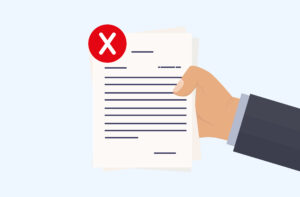
Receiving a denial letter after applying for Social Security Disability Insurance (SSDI) can be disheartening—but it’s not the end of the road. In fact, most SSDI applications are initially denied, even when the applicant meets all the qualifications. Fortunately, there are multiple levels of appeal, and many people successfully win benefits during the appeals process.
If you’ve been denied, PLBH is here to help you understand your rights and guide you through the appeal with confidence. Here’s a breakdown of effective strategies to help you challenge the decision and move your claim forward.
Understand Why Your Claim Was Denied
Before taking any action, carefully review your denial letter. The Social Security Administration (SSA) will explain the reason for the decision, which might include:
- Lack of sufficient medical evidence
- Failure to follow prescribed treatment
- Earning too much income (above substantial gainful activity limits)
- Insufficient work history or work credits
- Belief that your condition does not significantly limit your ability to work
Knowing the specific reason for your denial allows you to target your appeal and fix the gaps in your application.
Act Quickly—You Have Limited Time
You have 60 days from the date you receive the denial letter to file your appeal. Missing this deadline can force you to start the application process all over again. It’s crucial to begin preparing your appeal as soon as possible to avoid delays.
Step 1: File a Request for Reconsideration
The first level of appeal is called Reconsideration. This involves a full review of your claim by a different SSA examiner who was not involved in the original decision. At this stage, you should:
- Submit new medical records that strengthen your case
- Update your symptoms and limitations if your condition has worsened
- Explain why you disagree with the denial, clearly and in writing
Adding new evidence is essential. Simply resubmitting the same application without addressing the denial’s reasons is unlikely to lead to a different outcome.
Step 2: Request a Hearing Before an Administrative Law Judge (ALJ)
If your reconsideration is also denied, you can request a hearing with an ALJ. This is often the most critical stage in the appeal process, and many people win their case at this point.
To prepare for the hearing:
- Work with an attorney who understands SSDI law and procedure
- Organize your medical records and test results
- Secure written opinions from your doctors explaining how your condition affects your ability to work
- Be ready to testify about your condition, daily limitations, and past work
The judge may also question medical and vocational experts during your hearing, so it’s important to be prepared to address any challenges to your case.
Step 3: Appeals Council Review and Federal Court
If the ALJ denies your claim, you can ask the Appeals Council to review the decision. The Council can approve your claim, deny it, or send it back for another hearing. If that fails, you have the option to take your case to federal court.
While fewer cases reach these levels, they can be successful, especially with strong legal representation.
Key Tips for a Strong SSDI Appeal
- Stay organized – Keep detailed records of all communication and documentation
- Keep medical treatment consistent – Regular care supports your credibility
- Don’t minimize your symptoms – Be honest and thorough about how your condition affects your daily life
- Work with a skilled advocate – An attorney can help avoid mistakes and build a compelling case
Let PLBH Help You Win the Benefits You Deserve
Being denied SSDI doesn’t mean you’re out of options. At PLBH, we understand the frustration and stress that come with navigating the appeals process. Our team is dedicated to helping individuals with disabilities fight for the financial support they need to live with dignity.
Call PLBH at (800) 435-7542 to schedule a free consultation. We’ll review your denial, explain your appeal options, and work tirelessly to help you secure the benefits you’re entitled to.
